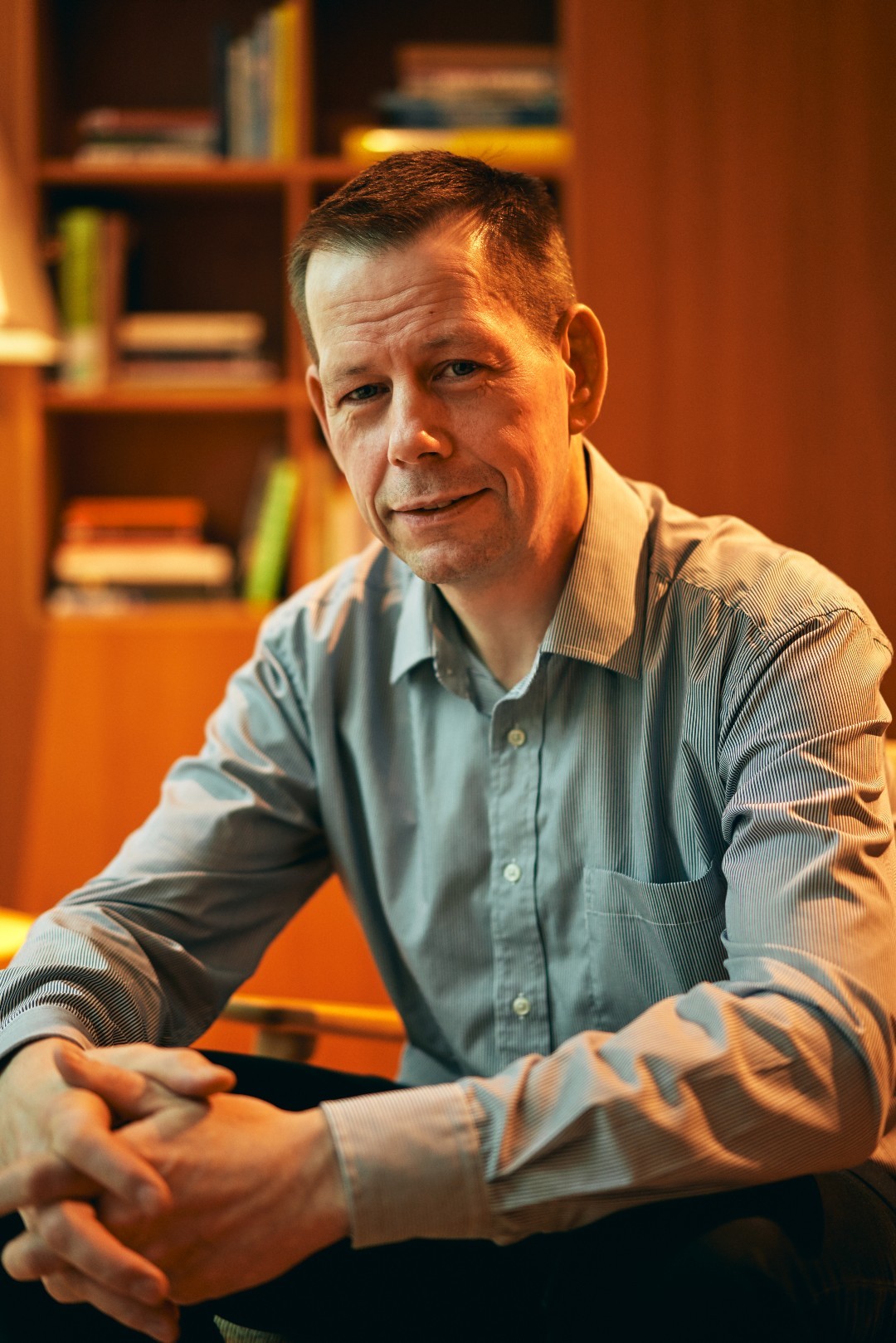2012 EY alumnus Nick Redmond talks about the challenges, the value and lessons learned of starting a large scale transformation project during a pandemic.
According to Bord Bia, the rapidly growing sports nutrition market is set to reach $45 billion globally in 2022. This growth has seen the category make the transition from highly specialist niche to the consumer mainstream in a relatively short period. It is little wonder in this context that Glanbia Performance Nutrition, the world’s largest sports nutrition business, should decide to change its business model to become more consumer orientated.
EY Consulting Alumnus Nick Redmond has been involved in that change since he took on his current role as Chief Operating Officer - Direct-to-Consumer at Glanbia Performance Nutrition(GPN) in 2018.
With the objective of futureproofing, the company had identified a need to switch its sales model from the wholesale and distribution channel to e-commerce and direct to consumer. “GPN had acquired a business in the north of the Netherlands run by highly entrepreneurial owners four years ago,” says Nick. “That was the trigger. What happened after that was a series of tactical and strategic changes within the acquired business.”
The first task was to deal with the legacy technology systems in use there. “We were never going to leave it as it was,” he points out. “It didn’t have a sophisticated finance system, for example. It was running multiple legacy systems that required streamlining. We migrated multiple processes including finance, purchasing and stock systems onto SAP to drive efficiencies. We needed to get the company ready for sales into a lot of markets and that drove a whole range of projects including re-platforming the website.”
The changes involved more than technology upgrades. The company’s head office was also being moved from the north of the country to Amsterdam. “We had to move. The previous location made it a challenge to find the right skills we needed for the future.”
Among the main reasons for the acquisition was the valuable know-how possessed by the company. “Prior to 2018 there were few in GPN that had sufficient e-commerce experience and competencies. That’s the reason they bought the company.”
Combining it with GPN would enable rapid scaling and growth. The programme involved a number of phases and the first was to re-platform a number of websites onto a scalable and future-proofed platform. It also saw the launch of 14 new websites localised for different geographies with two new Optimum Nutrition sites (the US and Japan) added in recent weeks.
This helped deliver economies of scale due to common web-platform, back office and fulfilment capabilities. It also delivered significant improvements in sales conversion rates along with a better understanding of customer acquisition costs.
“GPN’s online sales has increased significantly in recent years, so the shift to a business to consumer nutrition company, has been a major one for us,” says Nick.
That switch has delivered improved competitive advantage in the form of greater insights into the customer needs. “We improved the customer service system to be more customer centric and adopted a consumer-first approach to sales. It’s all about the customer in the end and giving them the choices that they want.”
The COVID-19 pandemic has impacted almost every area of the business. Disruptions to supply chains resulted in manufacturing issues and challenges in fulfilling orders. Ingredients and packaging suppliers around the world were affected by the pandemic.
“There was only one team within the business that was relatively unaffected,” says Nick. “That was the warehousing team in the Netherlands. There were very significant changes for all the other teams in areas like customer services, finance, IT, sales and so on.”
The timing of the move to the new head office in Amsterdam proved unfortunate. “We had just moved into the new office and then had to move to working from home the very next day,” he explains.
That would have been disruptive enough with an established workforce, but the company was engaged in a major recruitment programme at the time. “A lot of people chose not to move to the new office Amsterdam. We had a significant amount of recruitment and onboarding to do. We were in the middle of onboarding a huge number of new customer service people and then the whole team had to spend three or four months working from home.”
The pandemic and its impact on people’s lifestyles also resulted in changed sales patterns. “People changed their habits,” he notes. “They stopped going to the gym as much. They were pumping iron less and going for more walks and bike rides. Sales of some of our protein products actually decreased as a result. On the other hand, we saw increased sales in some other product sets like those containing vitamin D.”
There were also some interesting effects. “We got some unusual kinds of spikes in sales. One product was mentioned on a Netherlands TV show one evening at 10pm and it sold out on our website within an hour.”
The pivot to the direct-to-consumer model proved timely in aiding the company’s response to the pandemic. “By the time COVID hit us we had already launched six new fully localised websites,” he explains. “That gave us the opportunity to better understand markets and balance supplies to meet changes in demand. It also allowed us to expand into other product sets.”
That closeness to the market was very valuable as changes were by no means uniform. For example, while protein products suffered sales declines in some markets, sales of products which could be used in home baking increased. “We probably had a 30% hit in some product areas but we saw a bounce in others. That gave us the opportunity for us to look at other products. It also enabled us to do things better and faster and right first time. We couldn’t have built that closer connection to consumers at a better time. We have been able to provide consumer insights to the wider Glanbia Performance Nutrition business. We are the only part of the business with those direct insights.”
The enforced adoption of new ways of working was the other main impact. “We were surprised at how well it went,” says Nick. “We were engaged in training people who had just joined the organisation and introducing them to our culture, but people adapted well.”
He foresees a hybrid model being adopted in future. “The new HQ was optimised for co-location. We had spent quite a bit of time organising where each team would work to drive collaboration so having to shift to working at home was a bit disappointing. It was also challenging. But we have now proven that people can work from home. People can do three or four days in the office and the remainder at home. No doubt working at home may be a bigger part of the business in future, but it won’t be the same as it is now.”
The sports nutrition market is also likely to continue to change and become more competitive as people’s lifestyles adapt to new ways of living and working in a post-pandemic world and established consumer brands seek to move into this attractive new territory. GPN’s direct connections with consumers through its new highly sophisticated digital platforms will allow it to respond rapidly to changing needs and tastes by offering customers what they want when they want it.




